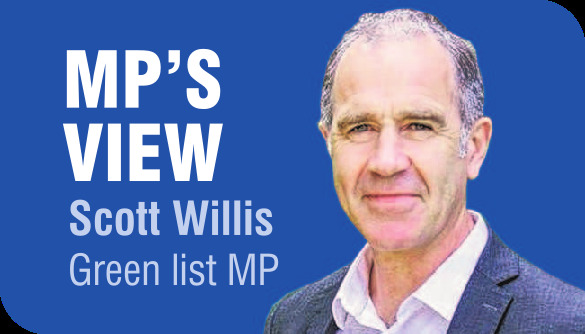
It is a lot more than parks and libraries, and matters so much because it happens at the coalface of community, and we are all impacted by it.
Nationally, policy for local government is set by central government, but implementation of policy happens through local councils who are held accountable through local elections for the delivery of public services and infrastructure, and who shape it to fit our communities.
Local government is routinely under-resourced by central government, yet cops the flak for everything from rising rates to bike lanes.
When the Prime Minister last month put the boot into local authorities over "wasteful spending", unsurprisingly, it landed badly.
His government is not making life easy for local government.
It is clear this coalition government is not focused on caring for our communities in Ōtepoti Dunedin and the Deep South.
The health sector is a glaring example. The government has reneged on its promise to properly fund Dunedin Hospital. Its cuts have forced increased costs at pharmacies and the doctors’. This hurts not only growing families but also our ageing population.
Rather than healthcare, this government is focused on cutting services.
Recent cuts to the Energy Efficiency and Conservation Authority’s funding has starved resources from those on the front line working with whānau in energy hardship, while landlords get a $2.9 billion tax cut.
That is more black mould and more tamariki with avoidable respiratory illnesses.
That public transport is being subsidised less pushes more costs on to families, making it harder for the Otago Regional Council to encourage people to use the bus and help reduce emissions.
A balanced transport system has a major role to play in achieving Dunedin’s Zero Carbon goal, but the coalition government is abandoning climate initiatives too, despite warnings that it will heap huge costs on New Zealanders in the long run.
In July, after a child was struck by a car while traversing State Highway 1 from the Waitati bus stop to Waitati village, the local community renewed their call to lower the speed limit at the intersection.
But instead of taking heed of such calls, the government plans to increase speed limits, ignoring safety impacts.
It may not be until 2026 that we have a progressive, responsible central government. We are working on it.
In the meantime, local government is holding the line.
The South Dunedin Future Programme (funded by the Otago Regional Council and Dunedin City Council) is working with the community to adapt to climate impacts, without support from central government.
Furthermore, the Otago Regional Council is developing a Land and Water Regional Plan to protect Otago’s precious waterways for future generations, work it was elected to do.
Dunedin now has an accessible, vibrant city centre with partial pedestrianisation.
Local body elections will be held next year. They are important because local government has a direct impact on the quality of life for our communities.
So here is to local leaders who are working for our communities; leaders who respect the evidence and follow good process.













